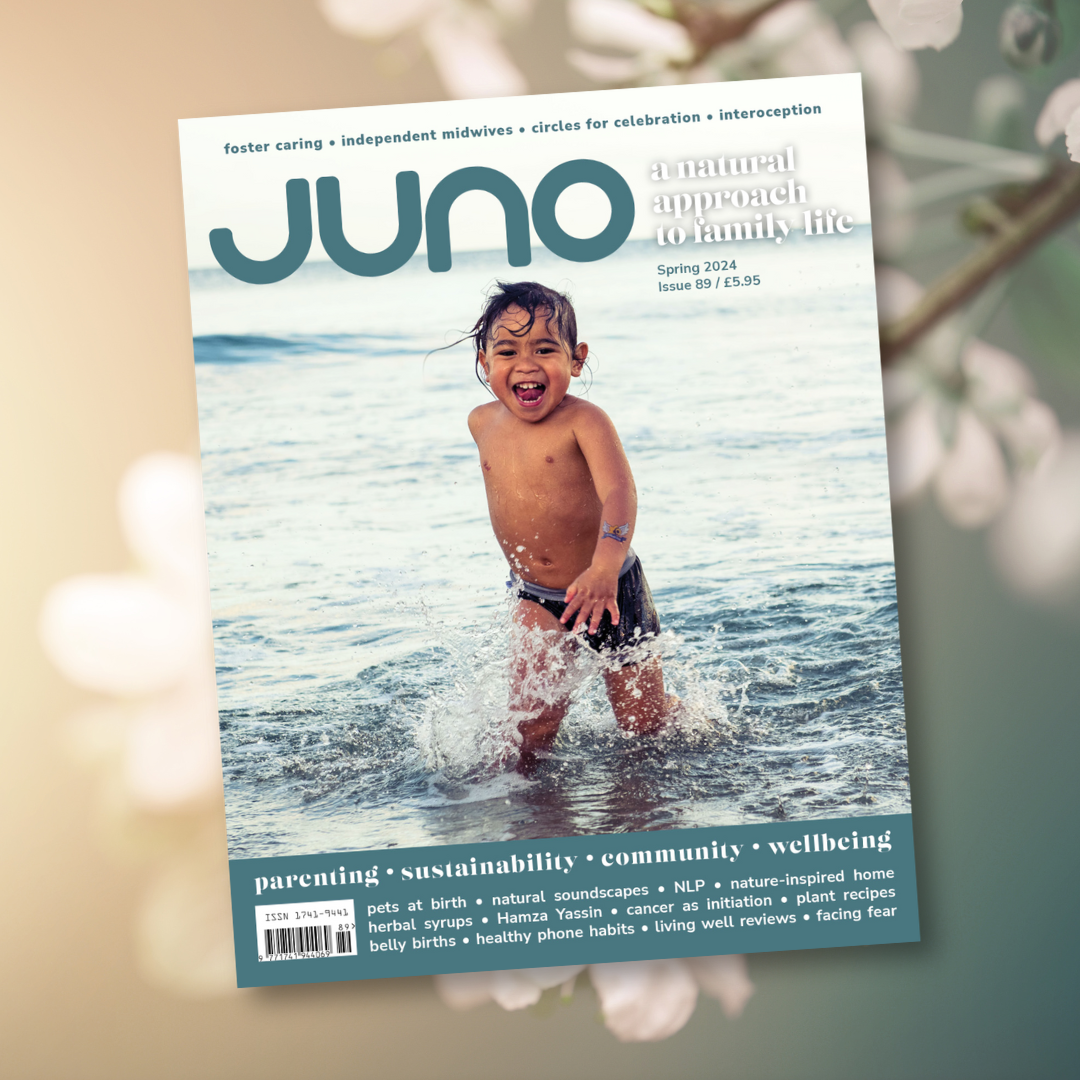“When she latches, I just feel overwhelmed with anger and I get this rush that makes me want to take her off and leave the room. I just hate it all. I don’t really know why it happens – we had such a good breastfeeding journey. It was a total shock when I first felt like that, and the guilt afterwards makes me feel I’ve failed as a mother.” Anabelle, Nottingham
We don’t often hear about mothering with such negative emotions, especially when we think of breastfeeding and all the images of love that we see. Yet, many authors, like Jacqueline Rose in Mothers: An Essay On Love and Cruelty, and Naomi Stadlen in What Mothers Do: Especially When It Looks Like Nothing,write not only about a mother’s love, but hate as well, and how they are inseparable. Many of us don’t know that in the 15th century, motherhood didn’t carry expectations of feelings, nor the notion of motherly love. It was only later, in the 18th century, that emotions and behaviours of mothers were to be taken very seriously. Mothers were then increasingly expected to feel a close bond with their children, and their maternal qualities were judged and evaluated by this bond. A mother’s love was epitomised as the purest, most natural love, and in the 19th century, it started to be idealised in literature. This literature propagated the idea that there is something uniquely special and innate about a mother’s love, and this is what we inherited as mothers born in the 20th century.
A natural consequence of this, over the centuries, was the erasure of a mother’s hate; mothers were disallowed to feel certain things because they would be either judged, silenced or condemned. Mothers who did not fit into the picture-perfect idealised mother on a pedestal were considered ‘bad’ mothers, aberrations to ‘normal’ motherhood, which left many feeling like failures if they experienced negative emotions, especially when breastfeeding.
How does society affect mothering?
In the 21st century, the age of scientific knowledge about neuroscience and the role of hormones like oxytocin, we recognise that having secure attachment is important for humans to thrive and we do our utmost to fulfil this. Even when many of us have to, for the first time in history, do it all alone. For most of human history, alloparenting and shared parental duties existed in communities and tribes, which included milk-sharing and bed-sharing. Now these responsibilities, particularly breastfeeding, fall squarely on the mother’s shoulders, even when mothers have conflicting demands on their time and energy, like having to go back to work. These pressures necessarily affect our mothering experience, and for those of us who mother through breastfeeding – using it as a tool of comfort and nurture as well as nutrition – this affects our ability to breastfeed too.
Nursing aversion and agitation – what is it?
In my book, When Breastfeeding Sucks, I present my biopsychosocial theory of aversion. Aversion is a rather heart-breaking phenomenon, where breastfeeding triggers particular negative emotions and intrusive thoughts including anger, irritation, agitation and even rage. Many mothers also report skin itching/crawling sensations, an overwhelming urge to de-latch their nursling, and thoughts about wanting to run away. But breastfeeding mothers cannot just ‘up and leave’. From supporting thousands of women, and from my research over the years, I have found that mothers can experience aversion at any point in their breastfeeding journey, with varying onset, duration and severity.
Whilst we know that maternal mammalian aggression exists in the natural world, as can be seen when lionesses push their cubs away when they don’t want to breastfeed or be touched, it is less clear why human mothers may experience these kinds of urges with younger nurslings. I suggest a number of physiological and psychological reasons why aversion may occur. These include clear hormonal causes, such as the spike in testosterone some mothers get when ovulating, as testosterone is well known to play a role in aggressive behaviours, and it is also an oxytocin antagonist and can inhibit the positive, loving effects a let-down should encourage in a mother. Mothers who have had, and continue to have, challenges when breastfeeding – like those feeding through persistent pain and discomfort, those feeding through pregnancy, or those suffering from Raynaud’s syndrome – can develop a strong negative association with the act of breastfeeding, and this can cause a stressful cycle to occur which results in aversion. Humans tend to want to move away from activities that are stressful or painful so it makes sense that if one cannot, one will be irritated or angry when having to do them. This means also that certain mothers may be at risk of experiencing aversion – those who are survivors of sexual abuse, those breastfeeding with discomfort or those tandem feeding. Although we don’t know how common it is, there are certainly thousands, if not tens of thousands, of mothers who experience it. I know this because of the number of mothers in our aversion community on our social media pages and groups.
What can help?
There are steps that mothers can take to try to alleviate aversion, based on biology and psychology, as these both have a role to play. I outline the steps in the acronym ‘BROMPHALICC’. This stands for:
Breastfeeding aversion triggers
Reactionary behaviours
Ovulation and
Menstruation
Prevention
Hydration and nutrition
Active distraction and redirection
Lifestyle and sleep
Interventions
Counselling and other therapies
Cessation of breastfeeding
Firstly, it’s about perspective, and this is why I urge mothers to look objectively about the pressures and expectations we have inherited. Then it’s about noticing what triggers aversion, whether it is feeling ‘touched out’, not setting boundaries, or experiencing sensitive nipples due to hormonal changes from pregnancy or even postnatal menstruation. Having negative emotions and premature de-latching when breastfeeding can sometimes mean a vicious cycle kicks in, where a nursling seeks closeness and attachment straight away and asks for the breast again, only to trigger aversion. So working on our reactionary behaviours can help curb this cycle.
There are a number of other options to implement to either lessen or get rid of aversion – depending on why you have it – and many mothers find that just hydrating, particularly at night, can work. Others take supplements like magnesium and vitamin b complex, but we don’t have evidenced-based reasons as to why they may work. For some, it is a true natural biological trigger to start the weaning process – if the nursling is older. We know that milk, whether human or formula, is the main source of nutrition in the first year, so aversion as a trigger to stop breastfeeding before this point would not make sense.
Understanding that we experience a wide range of emotions, and that these are normal and natural, can often be enough to help mothers when managing aversion. The most frequent comment in aversion support groups is the relief felt at knowing others experience aversion, that mothers are ‘not alone’ in feeling negatively. Perhaps the erasure of feelings of hate is worse than the hate itself. To be human is to feel, and to be a mother in the 21st century can mean feeling frustrated, alone, overwhelmed and angry because our expectations of mothering, and of ourselves, do not match our reality. It’s only natural for emotions to arise when expectations do not meet reality. The main thing is knowing it is OK to feel the way mothers do when they experience aversion, and that breastfeeding is only one part of the journey – a relatively small part in terms of years, given the span of our lives. I gently remind mothers that there is plenty of time to enjoy other parts of motherhood, to become the mother you imagine yourself to be, and in doing so, I remind them there is hope that things will get better, a reminder that so many mothers with aversion need.
____
Zainab Yate has a degree in medical ethics and law and is an independent infant feeding researcher and campaigner. She is currently vice-chair of the North London Research Ethics Committee, with the Health Research Authority in the UK (HRA). She lives in Hertfordshire with her family. on Instagram.
When Breastfeeding Sucks: What You Need to Know About Nursing Aversion and Agitation by Zainab Yate is published by Pinter & Martin.
Photo by Helena Jankovičová Kováčová
____
First published in Issue 69 of JUNO. Accurate at the time the issue went to print.



